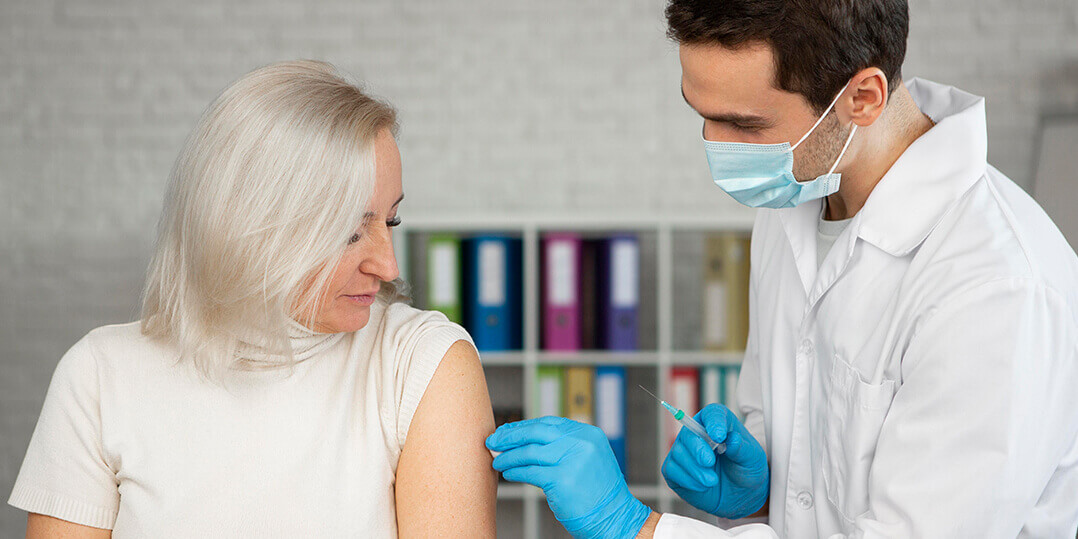The main healthcare agenda at the present is COVID-19 vaccinations. But what are vaccines, how do they work, and why do you need them? Here are 10 things you need to know about vaccines and vaccinations.
What are vaccinations
The body’s immune system is designed to protect against pathogens causing diseases. While the system is efficient, sometimes the immune system is overwhelmed by pathogens, resulting in serious illness. Most pathogens that cause serious illnesses are those that the body does not recognize.
Vaccination is a method of “teaching” the body’s immune system to recognize and eliminate a pathogen. This way, the body will be prepared if you are exposed to the pathogen, and it will not cause you problems. Therefore, vaccinations are a way of protecting people from getting sick. Some of the diseases that have been controlled by vaccinations include measles, polio, tetanus, and whooping cough.
Did You Know: Vaccinations helped in the eradication of smallpox from the world in 1979!
How do vaccines work
A healthy immune system is made up of different cell types that defend against harmful pathogens. However, the immune cells have to recognize the harmful pathogen so that they can be effective against it.
Vaccines teach the body to recognize a new disease and make antibodies against the antigens of the pathogen. It also prepares the immune cells to remember the specific antigens that cause infection. This allows the immune system to have a faster response to a disease in the future. Therefore, vaccines work by exposing you to a safer version of a disease. The body then builds an immune response that equips it to fight an actual infection.
Are vaccinations safe
Vaccines are safe. They undergo rigorous testing and many rounds of research, examination, and study before they are used in public. A bulk of evidence shows that vaccines are safe and side effects are rare, and mild if they occur.
What is the effectiveness of vaccines?
Vaccines are highly effective in providing protection from disease, but none is 100% effective. The degree of effectiveness varies from one vaccine to the next. For example, Flu vaccines lower the risk of infection by 40 to 60% in people who get the flu shot, while the measles vaccine is 98%.
Vaccinations in children?
Yes. Vaccines are given to children to help protect their developing immune systems from potentially deadly diseases. The vaccines will protect your child against diseases they might encounter when interacting with their family members, classmates, playmates, and friends. There is a recommended vaccine schedule from the U.S. Centers for Disease Control and Prevention (CDC) which ensures the child has the full range of protection as they grow up.
What are the ingredients in a vaccination?
There are four vaccine types currently being used:
- Killed (inactivated) vaccines – these are made from a dead bacterium or virus
- Live virus vaccines – these use a weakened version of a bacterium or virus
- Toxoid vaccines – these come from a harmful chemical or toxin produced by the bacteria or viruses, and makes you immune to the harmful effects of the toxin.
- Subunit, recombinant, polysaccharide, and conjugate vaccines – these use a structural component of a bacterium or virus to train your immune system to attack the germ.
Other ingredients in the vaccines are added to keep the vaccine safe during production, storage, and transportation. They include antibiotics, preservatives, stabilizers, adjuvants, and suspending fluid.
Vaccinations cost
The cost of vaccinations is covered by most health insurance plans and you incur little or no out-of-pocket costs. If you do not have insurance or your insurance does not cover vaccines, you can get other low- and no-cost alternatives. Get in touch with us at Shot Health for more information on these alternatives.
What about vaccinations in pregnancy?
When you are pregnant, the vaccines protect both you and your growing baby. You and your baby need protection against serious diseases during these nine months. Vaccines are a vital part of the protection you need.
Get to know more about vaccines in pregnancy from the CDC website.
Why aren’t some people not vaccinated?
Recently, vaccine opponents have fronted arguments challenging the safety and effectiveness of vaccines. However, these arguments are flawed and are not backed by evidence. There is no evidence that vaccines can cause serious disease, they prevent serious disease and death.
What if we stopped vaccinations?
Ending vaccination could be dangerous. The World Health Organization estimates that vaccination prevents 2 to 3 million deaths every year. Stopping vaccinations would therefore mean 2 to 3 million more deaths annually.
Did you know!
You can now get yourself and your family vaccinated from the comfort of your home. Contact us at Shot Health and plan your vaccination at your convenience.



